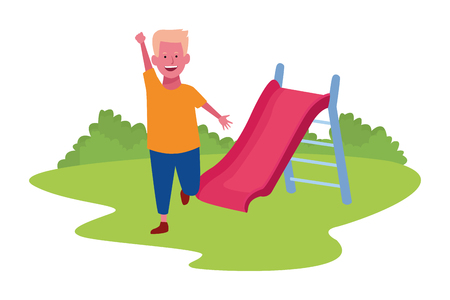1. Understanding Toddler Independence
Toddlers are naturally curious and eager to do things on their own. As your little one grows, you’ll notice more signs of independence in daily life. This journey is an important part of their development and helps build confidence for future challenges.
Milestones of Growing Independence
Every child is unique, but there are common milestones that many toddlers reach as they become more independent. Here’s a look at some key signs and what you might see:
| Age Range | Milestone | What You Might See |
|---|---|---|
| 12-18 months | Exploring alone for short times | Walking away from parents to play with toys nearby |
| 18-24 months | Self-feeding skills | Using fingers or a spoon to eat simple foods |
| 2-3 years | Dressing and undressing with help | Trying to put on shoes or hats, pulling off socks |
| 2-3 years | Expressing choices and preferences | Saying “no,” choosing favorite snacks or toys |
| 3 years+ | Beginning simple self-care tasks | Washing hands, brushing teeth with supervision |
The Importance of Self-Help Skills
Developing self-help skills—like feeding themselves, washing hands, and cleaning up toys—gives toddlers a sense of achievement. These small wins help them understand they are capable, which encourages them to try new things both at home and in social situations like daycare or playgroups.
Building Confidence Through Everyday Routines
You can support your toddler’s independence by letting them participate in daily routines. For example, encourage your child to put away their shoes when coming inside or help set the table during meals. These simple actions boost their confidence and teach responsibility.
Tips for Fostering Independence:
- Offer choices: Let your toddler pick between two outfits or snacks.
- Praise efforts: Focus on trying, not just success (“You did a great job putting on your socks!”).
- Create safe spaces: Child-proof areas so your toddler can explore safely.
- Be patient: Allow extra time for tasks so your child can practice new skills without feeling rushed.
- Stay supportive: Be nearby to encourage and assist if needed, but resist the urge to do everything for them.
2. Balancing Supervision and Freedom
Creating a Safe Space for Exploration
Toddlers learn best when they feel secure, but they also need the freedom to explore their surroundings. As a parent or caregiver, your job is to set up an environment that encourages curiosity while keeping safety in mind. Here are some practical ways to do this:
| Strategy | How It Helps Your Toddler |
|---|---|
| Childproofing | Removes obvious dangers so your child can safely move around and discover new things. |
| Setting Up Play Zones | Defines areas where your toddler is free to play, use toys, and interact with others. |
| Using Positive Language | Encourages your child to try new activities instead of focusing on what they shouldn’t do. |
| Supervising from a Distance | Lets your toddler practice independence while you’re close enough to step in if needed. |
Allowing Choices and Healthy Risks
Toddlers love making choices—it helps them feel confident and builds decision-making skills. You can support their independence by offering simple options:
- Let them pick between two snacks.
- Ask which shirt they want to wear.
- Offer a choice of books at bedtime.
Taking healthy risks is also important for development. This might mean letting your child climb a low playground structure or pour their own water (with supervision). These experiences teach problem-solving and build resilience—just be sure the risk matches your child’s age and abilities.
Maintaining Clear Boundaries
While it’s great to give toddlers freedom, clear rules help them feel safe. Use consistent, simple guidelines like “We keep our hands to ourselves” or “We stay where Mom can see us.” Remind them gently as needed, and praise good choices. Boundaries aren’t about saying “no” all the time—they’re about helping your child understand what’s safe, expected, and respectful of others.

3. Nurturing Social Skills Through Daily Interactions
Why Social Skills Matter for Toddlers
Toddlers are just starting to understand how to interact with the world and the people around them. Every day, they learn new ways to connect, communicate, and cooperate. Helping your toddler build social skills at this stage will set a strong foundation for their future friendships, teamwork, and emotional well-being.
Encouraging Positive Social Behaviors
As your child begins to spend more time with other kids and adults, you can use everyday moments to help them practice important social skills. Here are some simple strategies:
| Skill | How to Encourage |
|---|---|
| Turn-Taking | Use board games or take turns stacking blocks together. Narrate turns by saying, “It’s your turn now!” and praise your toddler when they wait patiently. |
| Sharing | Model sharing by offering your child a toy or snack and saying, “Let’s share.” If playing with others, gently remind, “Can you let your friend have a turn with the truck?” |
| Expressing Emotions | Help toddlers name their feelings: “You look happy,” or “Are you feeling upset?” Encourage them to express themselves with words rather than actions. |
Everyday Opportunities for Social Growth
- Playdates: Arrange short playtimes with another child. Guide interactions if needed, but give space for independent problem-solving.
- Storytime: Read books about friendship and emotions. Ask questions like, “How do you think she feels?”
- Family Meals: Practice taking turns talking at the dinner table and encourage everyone to listen while someone else is speaking.
Troubleshooting Common Challenges
- If your toddler struggles to share, try using a timer: “When the timer rings, it’s your turn!”
- If they become frustrated during group play, help them use words like “Can I have a turn?” or “I’m sad.”
Nurturing these early social habits helps toddlers gain confidence in group settings and lays the groundwork for meaningful relationships as they grow.
4. Incorporating Play for Growth and Connection
The Power of Play in Toddler Development
Play is one of the most important ways toddlers learn about the world, themselves, and how to get along with others. Both independent play and group play offer unique benefits that support your child’s independence and social skills.
Benefits of Independent Play vs. Group Play
| Type of Play | Main Benefits | Examples |
|---|---|---|
| Independent Play | Builds confidence Encourages problem-solving Sparks creativity |
Puzzles Building blocks Drawing or coloring alone |
| Group Play | Teaches sharing and turn-taking Improves communication skills Helps children make friends |
Playing tag Building together with blocks Simple board games |
Tips for Successful Playdates
- Keep it short and sweet: For toddlers, an hour is usually enough time to play without becoming overwhelmed.
- Prepare a safe space: Remove fragile items and make sure toys are age-appropriate.
- Offer choices: Set out a few different types of toys so kids can choose what interests them.
- Be nearby but not intrusive: Let the kids work out small disagreements themselves, but step in if needed.
- Snack breaks help: Have healthy snacks available to keep everyone happy.
Cooperative Games That Support Social Growth
- Building towers together: Encourage your toddler and their friend to build something as a team, taking turns adding pieces.
- Singing songs with motions: Songs like “The Wheels on the Bus” or “If You’re Happy and You Know It” encourage group participation.
- Simple board games: Games that focus on matching colors or shapes are great for practicing patience and following rules.
- Pretend play scenarios: Set up a pretend kitchen or store where kids can take turns being the chef or customer.
Cultivating Meaningful Connections Through Play
Create opportunities for your toddler to meet new friends by joining local library story times, parent-and-me classes, or neighborhood parks. Be patient—some children warm up slowly, while others jump right in. Celebrate their efforts at making connections, no matter how small. Remember, every playtime is a chance to nurture both independence and social growth!
5. Setting Consistent Routines and Expectations
Toddlers thrive when they know what to expect from their day. Establishing consistent routines and clear expectations helps your child feel secure, empowered, and ready to grow both independently and socially. When toddlers understand what’s coming next, they’re less likely to feel anxious or frustrated, making transitions smoother for the whole family.
Why Routines Matter
Consistent routines give toddlers a sense of stability. They know when it’s time to eat, play, or sleep, which helps them develop confidence in their daily world. Predictable routines also help children practice independence — for example, knowing how to put on their shoes before heading outside or washing hands before meals.
Setting Clear Expectations
Toddlers are learning about boundaries and appropriate behaviors. By clearly explaining what you expect (“We use gentle hands with our friends,” or “We pick up our toys before bedtime”), you set them up for success. Simple rules that are repeated often help toddlers understand how to interact with others and the world around them.
Tips for Creating Effective Routines
| Routine Step | How It Empowers Toddlers | Social Growth Benefit |
|---|---|---|
| Morning Routine (wake up, brush teeth, get dressed) | Builds self-care skills and independence | Prepares them for group settings like daycare or preschool |
| Mealtime Routine (wash hands, sit at table) | Encourages responsibility and healthy habits | Promotes sharing and conversation with others |
| Playtime Cleanup (putting toys away together) | Fosters teamwork and following directions | Teaches cooperation and respect for shared spaces |
| Bedtime Routine (bath, storytime, goodnight) | Nurtures emotional security and self-soothing skills | Makes transitions easier for everyone in the family |
How Consistency Reduces Frustration
Toddlers can become overwhelmed by sudden changes or unclear instructions. Sticking to regular routines and calmly reminding them of expectations can prevent tantrums and meltdowns. For example, giving a five-minute warning before cleanup time lets your child prepare mentally, reducing resistance.
A Sense of Security Leads to Growth
When your toddler knows what is expected and can rely on familiar routines, they feel safe enough to explore new things — like making friends or trying a new activity. This balance between independence and social development lays the foundation for lifelong confidence and healthy relationships.


